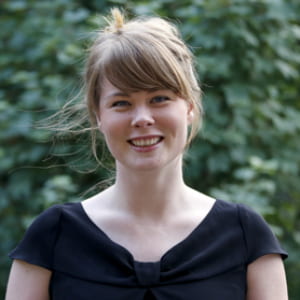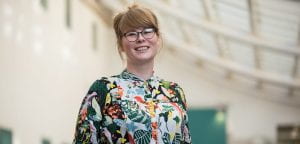DIY health and a wider approach to medical tech
It’s estimated that around four million people are living with diabetes in the UK and it’s on the increase. The devices that are available to help manage the condition have come a long way in the last decade.

Bristol University’s Dr Aisling O’Kane is a specialist in human/technology interactions, with a particular interest in how technology for type 1 diabetes is used in the real world. She explains her approach.
“You can make health technology to fulfil a purpose, but once it’s issued to a person, the way it fits into their everyday life can surprise you. It’s like a mobile phone – it’s a communication device to you but it can also be used as a babysitter for your child.
Some diabetes technologies were originally designed to be discrete, for example so they could be hidden on a first date. On the other hand, some users chose to reveal them in order to get disability passes at Alton Towers. Technology can have uses beyond its primary health and wellbeing function, so you have to factor that into the design.
“The rise of DIY health and wellbeing communities has had an influence. Whilst trying to understand the complicated issues behind diabetes technology design as part of my PhD, I became aware of a group of nerds, hackers and parents who’d had enough of the frustrations and started adapting their own devices. When they shared their designs open source on the internet, it had a massive impact. The industry became much quicker at releasing some improvements.
Expand your knowledge
“It’s all about the bigger picture. In that regard, I’ve been inspired and influenced by Professor Kristina Höök at Stockholm University. She completely changed my world view on the design of technology. She is a prolific researcher with a big personality who is just inspiring to hear talk about her research. Her studies in effective interactive technologies encompassed emotions and the whole human body, whereas most people don’t get beyond the fingertips. A lot of her stuff is playful but I think it has massive potential for safety-critical systems such as those used in healthcare.
“Whilst studying for my engineering degree I also took night classes in psychology. That truly shaped my research and my career aspirations. It’s why the best advice I give to students is to get a broad education. I think Bristol is a great place to be able to do that with the Bristol Futures Institutes. You can focus on things such as sustainability or health and wellbeing. Engineering is a broad discipline and you can make a really big difference, as long as you understand the world beyond writing computer programmes.”
Academic profile
Name: Dr Aisling O’Kane MEng, PhD (UCL)
Title: Senior Lecturer in Human Computer Interaction for Health
Dr O’Kane also works with two interdisciplinary research groups:-
Background: Dr O’Kane grew up in Toronto, Canada where she studied mechanical engineering, switching to industrial engineering to further an interest in designing for humans and all of their complexities. After working as a consultant looking at human-error potential in the nuclear industry, she took a masters degree in interactive systems engineering at KTH Royal Institute of Technology in Sweden. She focused on the social and emotional aspects of how people engage with interactive technology. In order to apply that learning to the medical field, and after a short internship at Microsoft research in Cambridge, she gained a PhD at UCL under the CHI+MED project; making devices safer by reducing human error.


